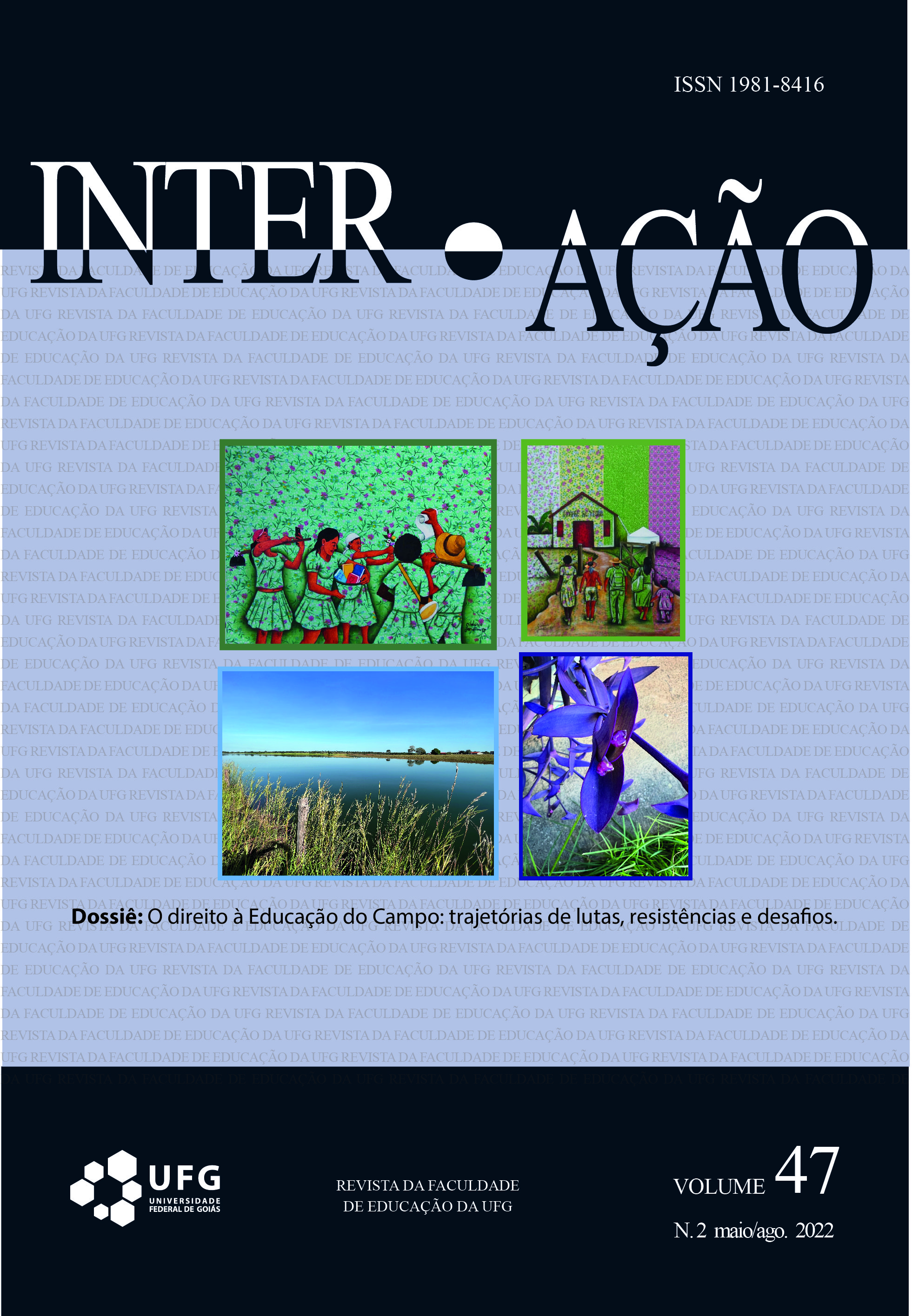POLÍTICA, EDUCAÇÃO E INTELECTUAIS: A EXPERIÊNCIA EDUCATIVA DA LICENCIATURA EM EDUCAÇÃO DO CAMPO NA UNIVERSIDADE FEDERAL DO TRIÂNGULO MINEIRO
DOI :
https://doi.org/10.5216/ia.v47i2.72093Résumé
Este artigo analisa a experiência educativa construída pela Licenciatura em Educação do Campo da Universidade Federal do Triângulo Mineiro (Lecampo/UFTM). Acompanhando desde a sua origem, enquanto política pública de educação direcionada às populações do campo, até as características que ela assumiu a partir da interação de sua proposta político-pedagógica com os territórios e sujeitos nela envolvidos. Apoiado na observação empírica e na pesquisa bibliográfica, o texto procura assinalar a importância e a dimensão que a participação e o protagonismo desses sujeitos e territórios assumiram na constituição desta experiência de educação popular na universidade brasileira, voltada para a formação de educadores e educadoras comprometidos com as lutas e os interesses dos povos do campo.
PALAVRAS-CHAVE: Educação Popular. Licenciatura em Educação do Campo. Territórios e Sujeitos.
Téléchargements
Téléchargements
Publié-e
Comment citer
Numéro
Rubrique
Licence
© José Henrique Singolano Néspoli 2022

Cette œuvre est sous licence Creative Commons Attribution - Pas d'Utilisation Commerciale 4.0 International.
A Inter-Ação utiliza como base para transferência de direitos a licença Creative Commons Attribution 4.0 para periódicos de acesso aberto (Open Archives Iniciative - OAI). Por acesso aberto entende-se a disponibilização gratuita na Internet, para que os usuários possam ler, baixar, copiar, distribuir, imprimir, pesquisar ou referenciar o texto integral dos documentos, processá-los para indexação, utilizá-los como dados de entrada de programas para softwares, ou usá-los para qualquer outro propósito legal, sem barreira financeira, legal ou técnica.
Autores que publicam neste periódico concordam com os seguintes termos:
1) Autores mantém os direitos autorais e concedem à revista o direito de primeira publicação, com o trabalho simultaneamente licenciado sob a Licença Creative Commons Attribution que permite o compartilhamento do trabalho com reconhecimento da autoria e publicação inicial nesta revista.
2) Autores têm autorização para assumir contratos adicionais separadamente, para distribuição não-exclusiva da versão do trabalho publicada nesta revista (ex.: publicar em repositório institucional ou como capítulo de livro), com reconhecimento de autoria e publicação inicial nesta revista.
3) Autores têm permissão e são estimulados a publicar e distribuir seu trabalho online (ex.: em repositórios institucionais ou na sua página pessoal) a qualquer ponto antes ou durante o processo editorial, já que isso pode gerar alterações produtivas, bem como aumentar o impacto e a citação do trabalho publicado.















